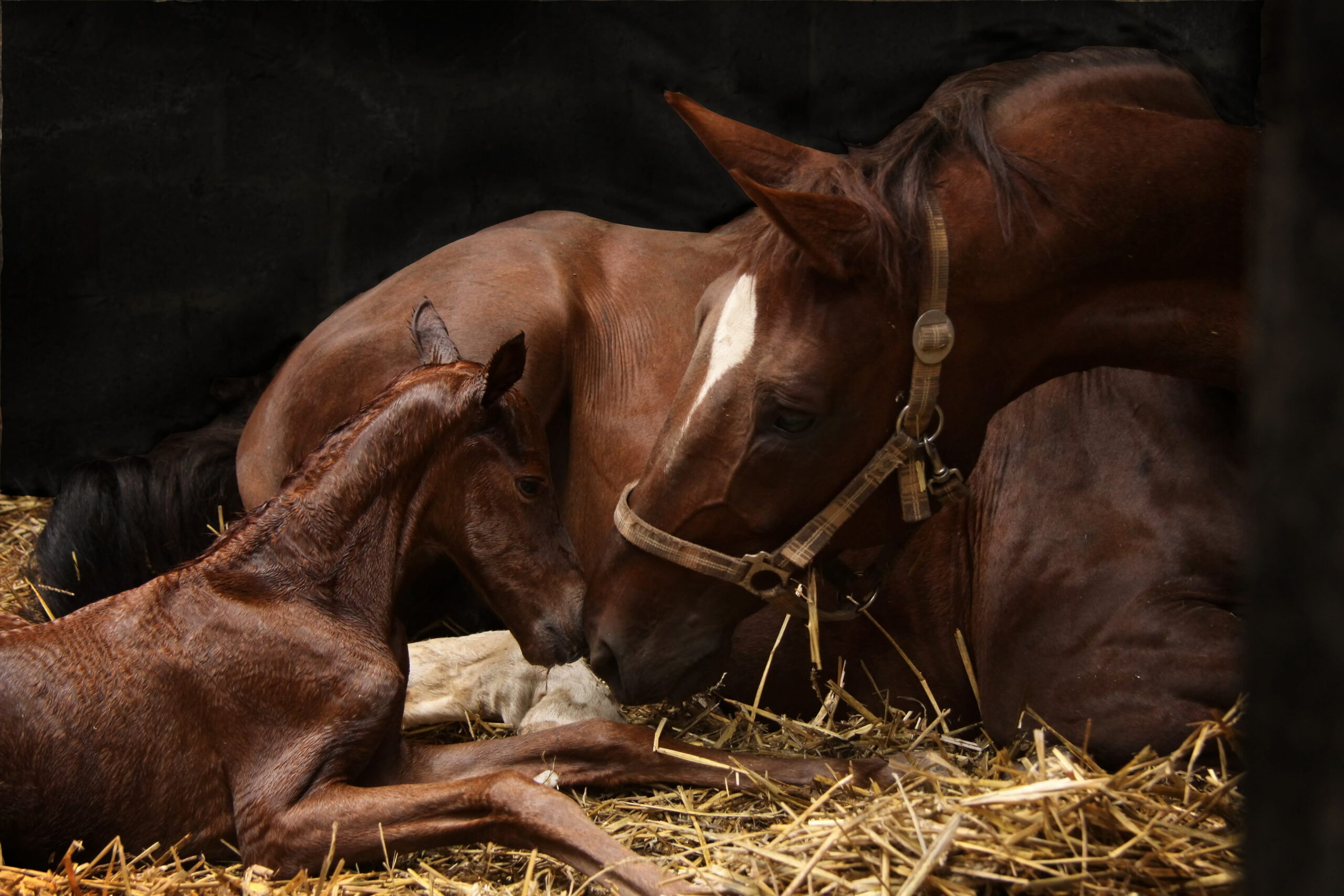Breeding your mare using artificial insemination can seem daunting. Here is the process that we use:
- You can do as little or as much as you would like with your mare prior to actually breeding her, to get her ready for pregnancy. We recommend a full repro examination where we culture the uterus and possibly take a biopsy to see what her chances of getting pregnant are and if she has any infection that will prevent her from getting pregnant. If she does have an issue, we can address it prior to getting her cycling and being bred.
- After the repro examination is done and it is determined that your mare is ready to breed, we can start tracking her follicular growth. If she is showing heat cycles, we would come out and check her during her heat cycle to see where she is at. If she does not show any heat cycle behavior we would then need to come out once a week to check her to see when she will come in to heat.
- Once she is in heat, we track the follicle approximately every other day. When the follicle is at a size good for breeding, we will call the stallion owner to order the semen and then give an ovulation inducing drug to help time her ovulation as close to when we are going to receive the semen.
- After your mare is inseminated, usually 1-2 doses, we will check to make sure she has not had any reaction to the semen. If she has had a reaction, we have about four days to flush her uterus and treat her to make it hospitable for an embryo.
- 14 days after ovulation we check to make sure the mare is pregnant and that she does not have twins. THIS CHECK IS VITAL! If she has twins and goes to 18 days, the fetus will be attached to the uterine wall and then the twin cannot be removed.
- Heartbeat check is at 25-30 days.
- One more check is done at 60 days to reconfirm pregnancy. Depending on the mare’s risk factors for abortion we can then periodically check her throughout the remained of the pregnancy to ensure all is going well.
- Pneumabort vaccines are given a month’s 5, 7 and 9 of pregnancy.
- Throughout the pregnancy you should monitor your mare for any signs of vulvar discharge that could indicate an infection in the placenta. Call us if you are concerned about any changes in your mare during pregnancy.

Breeding can be very rewarding but also very confusing. We are here to help make the process as smooth as possible. Please call us today to schedule your mares initial reproduction exam. 951-444-1838



No responses yet